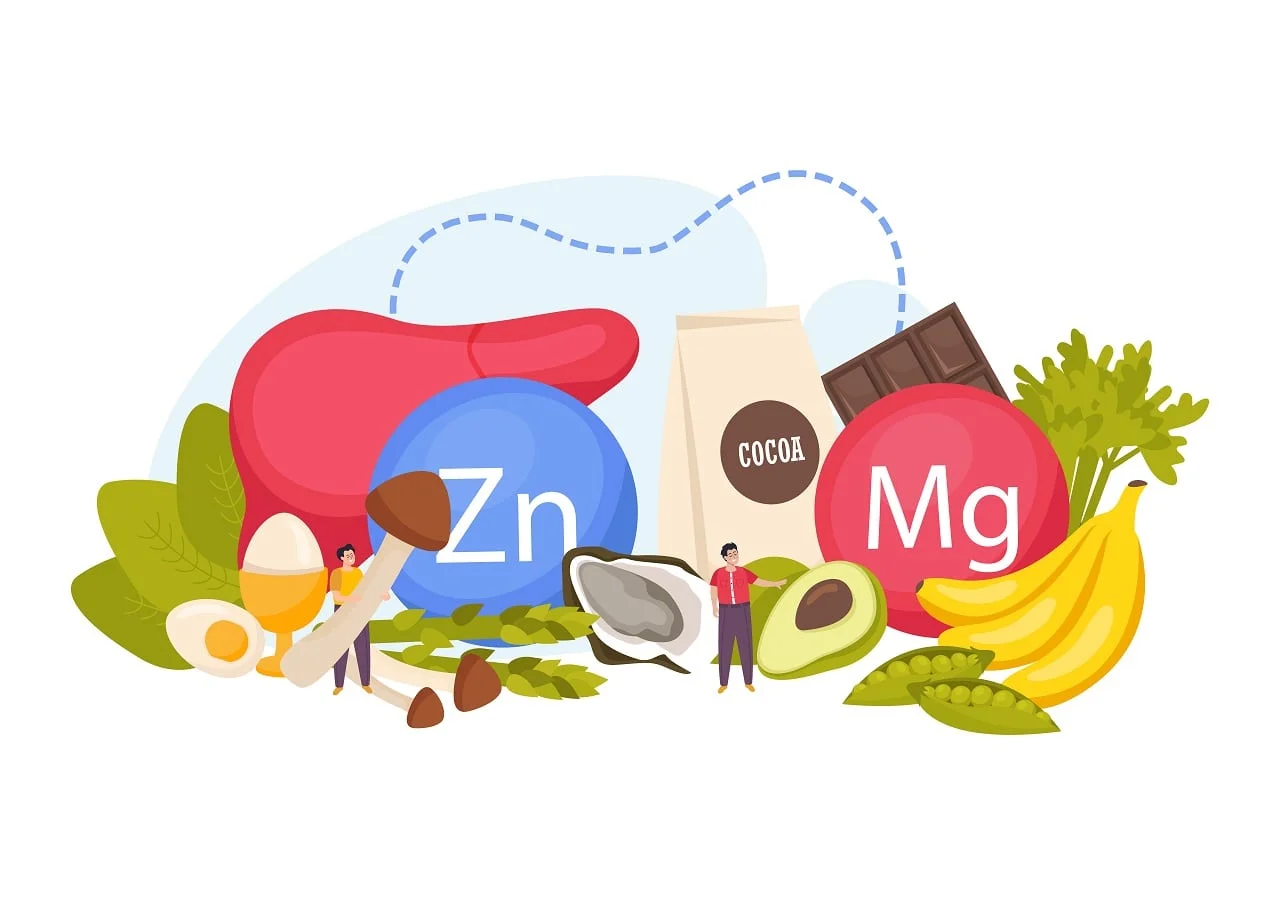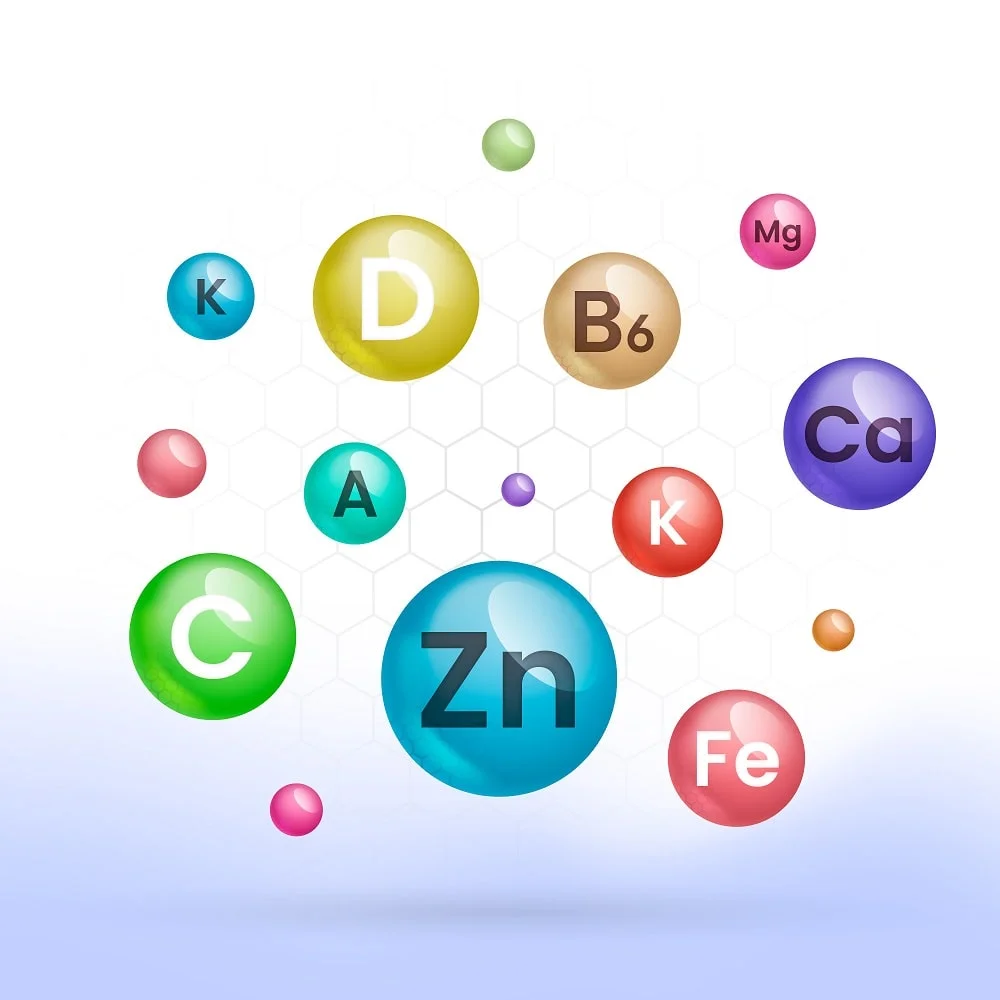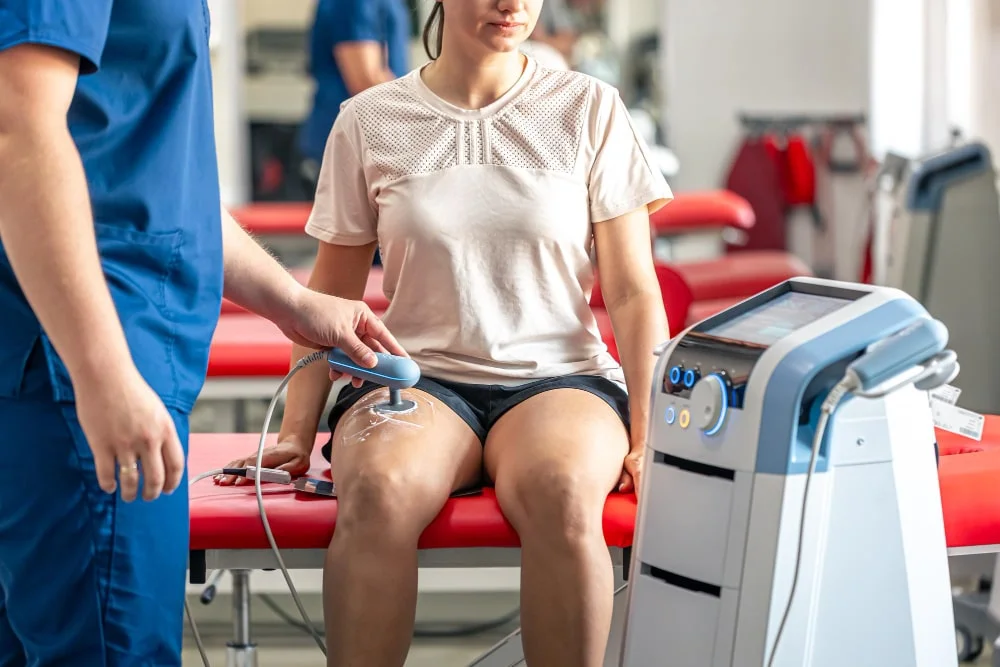
The Effect of Zinc Deficiency on Muscle Functions
- The Effect of Zinc Deficiency on Muscle Functions
- What Is Zinc and Why Is It So Important?
- Muscle Issues Observed in Zinc Deficiency
- Scientific Basis of Zinc for Muscle Health
- Determining Zinc Deficiency
- Zinc Supplementation: How, How Much, and When?
- Conclusion
As a specialist in Physical Medicine and Rehabilitation, musculoskeletal health is one of the most fundamental aspects I focus on. Whether aiming to increase muscle strength, reduce muscle fatigue, or accelerate rehabilitation processes, we evaluate numerous factors. Among these, there is a trace element that is often overlooked yet plays a critically important role: zinc.
Over the years, I have frequently observed in my clinical practice that impairments in muscle function are not limited to mechanical or structural causes alone—micronutrient deficiencies also have a direct impact on these issues. In this context, zinc deficiency can have quite pronounced effects on muscle performance, muscle strength, the healing process, and chronic fatigue.
What Is Zinc and Why Is It So Important?
Zinc is a vital mineral involved in the structure of over 300 enzymes and plays a role in thousands of metabolic processes in the body. It is essential in critical functions such as cell division, immune response, wound healing, and DNA synthesis. Moreover, it is indispensable for muscle function, including muscle cell repair and protein synthesis.
For muscle tissue to function properly, adequate zinc levels are required. Zinc plays a role in activating enzymes responsible for muscle contraction. Additionally, its antioxidant properties help reduce exercise-induced oxidative stress, minimizing muscle fatigue and damage.
Muscle Issues Observed in Zinc Deficiency
In my clinical practice, I frequently encounter the following problems in individuals with low zinc levels:
- Loss of Muscle Strength: In patients with zinc deficiency, a noticeable weakness—especially in the lower extremity muscles—can be observed. This can make simple daily activities like walking or climbing stairs significantly more difficult.
- Muscle Pain and Cramps: Inadequate zinc levels can negatively affect neural transmission between muscle cells, leading to pain and cramping.
- Delayed Healing: Recovery after sports injuries or surgeries can be significantly prolonged in individuals with zinc deficiency. This is related to the repair processes of both muscle and connective tissues.
- Low Exercise Tolerance: Quick fatigue during exercise, delayed recovery, and reduced performance are other clinical signs we associate with zinc deficiency.
- Sarcopenia (Loss of Muscle Mass): Especially in the elderly, zinc deficiency can accelerate age-related muscle loss, threatening independent living.
Scientific Basis of Zinc for Muscle Health
Zinc plays a critical role in the activation of satellite cells (dormant muscle stem cells) located within muscle tissue. These cells become activated after muscle damage and initiate the repair process. Zinc deficiency inhibits the activation and proliferation of these cells. Furthermore, since zinc contributes to the production of anabolic hormones such as testosterone, it indirectly supports muscle protein synthesis.
Another important function of zinc is its effect on mitochondrial function. Mitochondria are the energy centers of muscles, and zinc deficiency disrupts this energy production. As a result, muscles fatigue more easily and performance decreases.

Determining Zinc Deficiency
When I suspect zinc deficiency in a patient, I not only measure serum zinc levels but also evaluate their dietary habits, gastrointestinal disease history, and chronic medication use. This is because:
- Vegans/vegetarians
- Patients with malabsorption syndromes (e.g., celiac disease, Crohn’s disease)
- Individuals with chronic diarrhea
- Athletes who sweat excessively
are at higher risk for zinc deficiency.
Zinc Supplementation: How, How Much, and When?
The first step in treatment is to plan based on the severity of the deficiency and the individual's general health status. Some general supplementation protocols I use include:
- Oral Supplementation: This is the most commonly preferred method. Zinc is available in forms such as zinc sulfate, zinc gluconate, or zinc picolinate. It is generally recommended to be taken on an empty stomach or with vitamin C to enhance absorption.
- Mild deficiency: 15–30 mg elemental zinc per day
- Moderate deficiency: 30–50 mg elemental zinc per day
- Severe deficiency: Up to 50–100 mg per day—but such doses must always be administered under medical supervision.
- Topical and Local Applications: Some local preparations containing zinc can be used to support muscle damage repair, but they are inadequate for correcting systemic levels.
- Injections (Rare Cases): In patients with malabsorption, parenteral zinc may be necessary. However, this is typically administered under hospital conditions.
Note: Long-term high-dose zinc intake can interfere with the absorption of copper and iron. Therefore, zinc supplementation must always be monitored by a healthcare professional.
Conclusion
As a Physical Medicine and Rehabilitation specialist, I can confidently state that any approach aiming to improve muscle function must consider not only exercise and manual therapy but also nutritional and biochemical support. Zinc deficiency is often overlooked, yet it has a significant impact.
Evaluating zinc levels in individuals experiencing muscle fatigue, delayed recovery, cramps, or reduced performance is extremely valuable for properly guiding treatment and ensuring lasting recovery.
Do not neglect zinc—because strong muscles can only be built on a strong biochemical foundation.

Assoc. Prof. Dr. Elif Berber
Specialist in Physical Medicine and Rehabilitation





